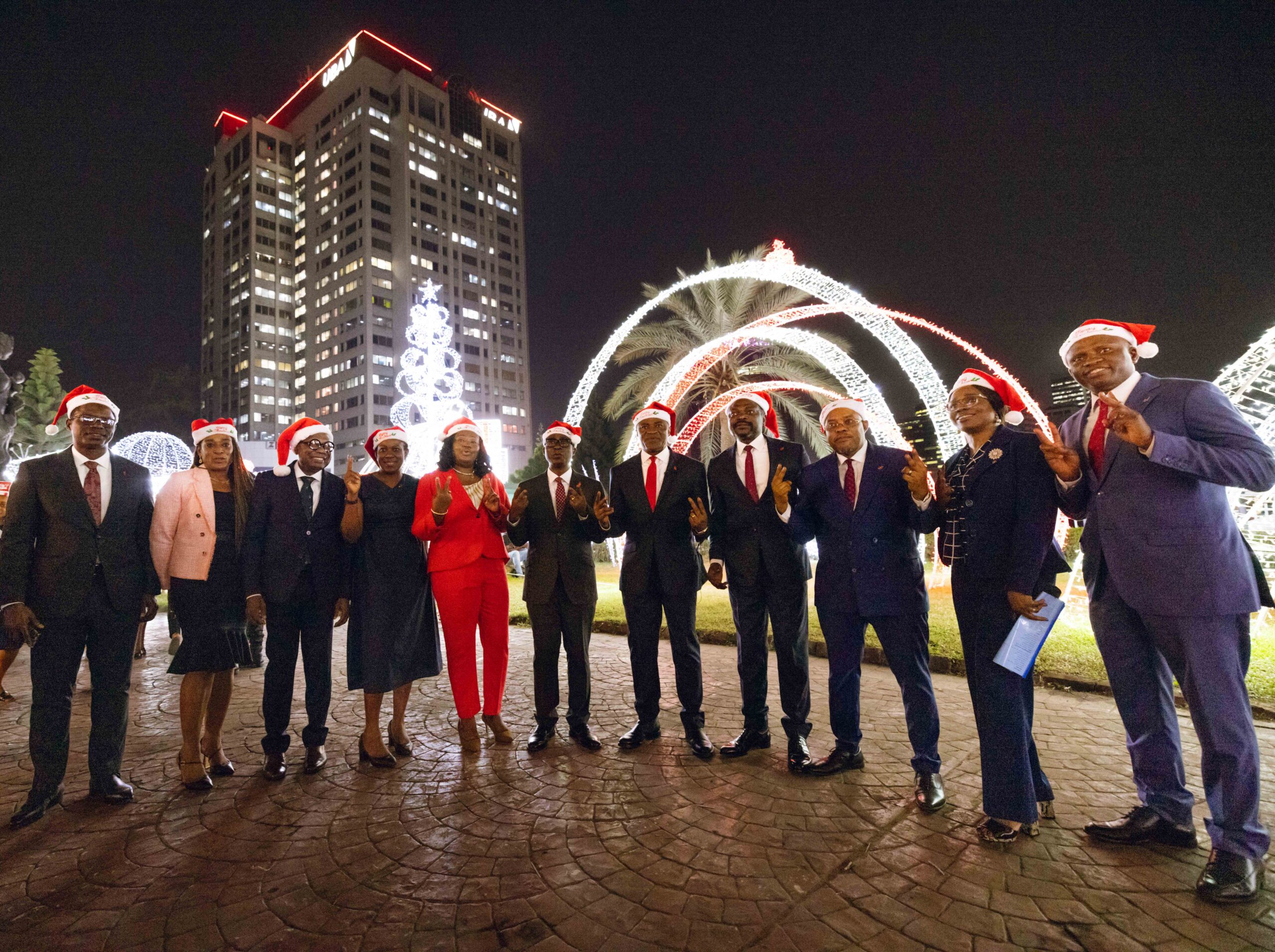Judiciary’s financial autonomy: JUSUN is right! – Dr.Muiz Banire

In the recent past and up till about a week ago, I have been intervening in matters relating to the financial autonomy of the judiciary. Thus, I am an unrepentant supporter and advocate of financial autonomy for the judiciary for several reasons that I shall highlight in the course of this discussion. However, before embarking on that voyage, let me, for the umpteenth time, commend the executive and members of the Judiciary Staff Union of Nigeria (JUSUN) for their resoluteness on this issue.
The union, at various times, has interrogated the issue via multiple legitimate means to actualize the import of the law. In one of such interventions, the union had approached the court of law and had emerged successful from it. This is in addition to the judicial intervention at the instance of the great Learned Silk, Olisa Agbakoba, that was equally successful.
To date, there are three pronouncements of courts. There was the decision in Olisa Agbakoba v. A.G., Ekiti State; Olisa Agbakogba v. Federal Government of Nigeria, the National Judicial Council and the National Assembly; and the last one, Judiciary Staff Union of Nigeria v. National Judicial Council and Governors of 36 States. Thus, beyond the strikes and various other advocacies done by the union, JUSUN is still armed with the judgments of court mandating the implementation of financial autonomy for the judiciary. In a sane clime, by the very pronouncement of the court, the issue would have been resolved.
The governors were party to the suit and ought to comply as they are bound by the judgment. But for the immunity clause in the Constitution shielding governors, they ought to have been held in contempt of those decisions. However, since the governors swore to uphold the provisions of the Constitution of the country, Sections 81(2), 84 (1), (2), (3), (4) and (7) being part of the Constitution, the violation of such as pronounced by the court ought to trigger impeachment of the respective governors. Regrettably, this can only happen in a decent society with an independent legislature.
Little wonder there is silence on the part of the legislators. By the constitutional provision, the judiciary’s budget ought to be submitted directly to the legislature and not through the present practice of going through the executive, which hands over any figure it deems fit to the judiciary.
Again, the sum due and payable ought to remitted directly to the National Judicial Council from the Consolidated Revenue Fund. The attempt to distinguish recurrent and capital expenditure in the construction of the provision is untenable as, most times, most expenses in the judiciary can be classified under recurrent. Before delving deeper into the subject, let me quickly correct an erroneous impression of some people about the ongoing strike.
The JUSUN strike is one of the few exceptions to general strikes in which the beneficiaries are the agitators. The financial autonomy the union is demanding does not automatically confer on the members any pecuniary gain. The sum of the struggle lies in the improvement of the administration of justice in the country. As at date, there is no pretending about the fact the infrastructure of courts is comatose. Most courtrooms are inhabitable, with some in the shape of a storage facility. It is a show of shame to exhibit what passes today as courtrooms as a place for the dispensation of justice.
Most staff are not well trained as a result of paucity of funds for capacity development of the staff. The stationery essential for the running of the courts is lacking. Notwithstanding that litigants pay for the filing of cases and equally pay for the service of originating processes by the bailiffs of the court, litigants still end up paying again for files and service of processes to activate the cases filed. Judges still largely write in long hands, as modern technological devises are lacking.
Most times, courts are unable to transact businesses due to lack of power, and, in cases of alternate sources, lack of diesel to power the generating sets obtains. Several times, chairs in the nature of benches have collapsed during court sessions while lawyers and litigants are sitting. Most courtrooms are badly lit. What about the logistics for judges? Constitutionally, judges are expected to deliver judgments within three months of concluding trials in the face of the daunting challenge of lack of electricity supply to their various homes.
I am not unaware that in some states generating sets are provided but to last if possible till eternity. Little or no diesel supply is made. What am I even saying? What about power supply in the court? I have attended a trial before a judge who, out of his passion and commitment to the dispensation of justice, had to procure from his meagre renumeration a 5kva generating set and buy fuel to conduct cases. This was for a period of almost nine months without power supply to the court as a result of theft of external cable supplying electricity to the complex. The judge in question, at the risk of embarrassing him, is the Honourable Justice Okorowo of the Federal High Court. I only pray that, in the nearest future, such judges are appropriately rewarded. In another scenario witnessed by several senior lawyers during the hearing of election petition cases in the Federal Capital Territory High Court Complex in Apo, I had to draw the attention of the then Chief Judge to the state of sanitation in the court infrastructure, no water supply, much less any functional toilet system. In fact, lawyers and litigants were compelled to approach the nearby bushes to answer the call of nature.
For how long are we going to wait on the executive without appropriate financial autonomy for the judiciary to address these? Is it the health of the judges we want to talk about? I have witnessed instances of judges being denied financial support for treatment simply because such judges are considered anti-government in their judgments, little wonder these days litigants believe they cannot win cases against the government in state courts. This is an erosion of the confidence that ought to be reposed in the judiciary. Have you seen judges’ vehicles break down on the road? While other government officials cart away huge sums under vehicle allowances and still purchase and make use of high-grade vehicles tagged utility vehicles, judges’ vehicles, at times, have to be used for more than 10 years as against the four-year rule of serviceability. Provision of security for judges and the courtrooms is another thing entirely. Cases of invasion of courtrooms abound, even while the court is sitting, much less when the court is not in operation.
Recall several courtrooms burnt during the #EndSARS protest. I have gone this length to enlighten the public about components of the struggle so as not confuse it with other union or industrial actions that largely border on conditions of service and welfare. The totality of the picture depicted above is that the issues being canvassed by the union affect all of us as Nigerians. Thus, the whole lot of Nigerians need to rise up and terminate this oppression once and for all. I say enough is enough!
Let me register my appreciation for the President in his attempt to hitherto solve this imbroglio by signing the Executive Order 10. Although, legally, this is unhelpful as it cannot actualize the objectives of the struggle but, morally, it is encouraging. Let us recall that in terms of constitutional provision and case law, the field has been covered and the Executive Order is even a surplusage. What is required is breathing life into the law by compelling the actors, the governors to act responsibly in this regard. The counter-argument often placed by the governors is that the stream of revenue is not static.
One quite understands this contention but will submit that this can be addressed via percentage remittance. There should be agreed percentage of amount to be remitted to the respective arms from whatever amount that comes in by way of revenue.
For example, while the legislature could attract 15 per cent, the judiciary can have 25 per cent and the executive 60 per cent. I believe this will be fair enough and eliminate the misgiving as to the practicality of autonomy. As to the argument that judges are not meant to be dealing with execution of projects, I agree but opine that this is curable through the appointment of court administrators charged with such responsibilities. The earlier, the better the country appreciates the fact that the judiciary is not a parastatal of the executive nor a ministry or even a unit under the Ministry of Justice. It is in no way subservient to the two other arms that enjoy financial autonomy.
There is no better way of appreciating the role of the judiciary than quoting in extenso the pronouncements of His Lordship in A.G., Abia State v. A.G., Federation and Others thus: “It is also important to bear in mind that the judiciary, especially the Supreme Court in particular, is an essential arm in the governance of the nation. It is the guardian of the Constitution, charged with the sacred responsibility of dispensing justice for the purposes of safeguarding and protecting the Constitution and its goals. The judiciary, when properly invoked, has a fundamental role to play in the structure of governance by checking the activities of the other organs of government and thereby promoting good governance, respect for individual rights and fundamental liberties and also ensuring the achievement of the goals of the Constitution and not allow the defeat of such good goals and intendment. It is the duty of the court to keep the government faithful to the goals of democracy, good governance, for the benefit of the citizens as demanded by the Constitution.”
Per Mustapha JSC. Similarly, Rhodes-Vivour, JSC (Rtd.) in PDP v. Sylva had this to say: “This court and indeed all courts in Nigeria have a duty, to ensure that citizens of Nigeria, high and low get the justice which their case deserves. The powers of the court are derived from the Constitution not at the sufferance or generosity of any other arm of government of Nigeria. The Judiciary, like all citizens of this country, cannot be passive onlooker when any person attempts to subvert the administration of justice and will not hesitate to use the powers available to it to do justice in cases before it”. A situation where the Judiciary goes cap in hand to the Executive is unhealthy for the administration of justice. The situation of he who pays the piper, dictates the tune must not be allowed to continue.
Without financial autonomy, there cannot be judicial independence. In the light of the above profound statements, it is incumbent on all and sundry, particularly the Nigerian Bar Association and all lawyers, to support the struggle of the JUSUN.







